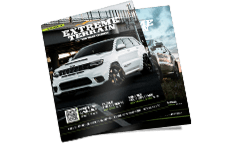Understanding the Basics of Wheel Function
When considering the upgrade or replacement of wheels on a 2005-2010 Jeep Grand Cherokee WK, it's crucial to understand the primary functions of these components. Wheels have the dual purpose of facilitating motion by transferring power from the drivetrain to the road and supporting the vehicle's weight. High-quality wheels enhance the vehicle's ride, handling, and overall performance; conversely, poorly designed or manufactured wheels can negatively impact these crucial aspects. Steel and aluminum alloy are the prevailing choices for wheel material construction, owing to their strength, durability, lightness, and the ease with which they can be worked.
Manufacturing Techniques for Wheel Material Construction
Manufacturing techniques for these materials include casting, forging, and flow forming. Cast wheels, made by pouring molten metal into a mold, are the most common and cost-effective, but are relatively heavy and weak compared to the other options. Forged wheels are made by applying high pressure and temperature to a solid billet, resulting in a lighter, stronger wheel, but at a higher cost. Flow-formed wheels strike a balance between the two, using a combination of casting and rolling to create a wheel that's stronger and lighter than a cast wheel but less expensive than a forged one.Global Standards for Wheel Quality
Quality standards for wheels are stringently regulated worldwide. The Tire and Rim Association in the U.S., the European Tyre and Rim Technical Organization in Europe, and the Japan Light Wheel Alloy are among the major authorities that set these standards. Compliance with these standards ensures that the wheels are durable and safe. Important Parameters in Wheel Replacement One key consideration for replacing wheels on a 2005-2010 Jeep Grand Cherokee WK is compatibility with the vehicle's wheel hub, for which bolt pattern and center bore specifications are most pertinent. The Grand Cherokee WK comes with a bolt pattern of 5x127 and a center bore of 71.5mm. These form the core around which different wheel dimensions can vary, which involve wheel diameter, width, backspacing, and offset.Understanding the Effects of Wheel Characteristics on Performance
Performance characteristics of wheels essentially boil down to unsprung mass and rotational inertia. Lighter wheels provide better handling and fuel efficiency, but may compromise on durability. Larger diameter wheels can improve handling and stability, but at the cost of ride comfort and potentially fuel efficiency.Considerations in Selecting the Right Aftermarket Wheels
Selecting the right aftermarket wheels for your Jeep Grand Cherokee WK involves taking into account variables such as vehicle age, mileage, operating conditions, and maintenance history. Older, higher mileage vehicles may not be equipped to handle the added stress of larger, heavier performance wheels. Similarly, vehicles predominantly used off-road may require a more robust, heavy-duty wheel. Synchronizing Wheel Upgrades with Other Modifications Aftermarket wheel selection often coincides with upgrades or modifications to related product categories. Enthusiasts commonly coordinate wheel upgrades with enhancements to tires, suspension components, and brake systems, as these parts can all be affected by changes in wheel size or weight. By properly synchronizing these modifications, it's possible to achieve significant improvements in vehicle performance, efficiency, and safety.Making the Most Optimal Choice of Wheels
The choice of wheels for a 2005-2010 Jeep Grand Cherokee WK involves a careful balance of technical specifications, manufacturing quality, performance trade-offs, and vehicle fit. By supplementing this information with meticulous research and informed decisions, enthusiasts, mechanics and automotive professionals will be well-equipped to make the most optimal choice for their specific needs.Fitment Includes:
- 2005, 2006, 2007, 2008, 2009 and 2010 Jeep Grand Cherokee
- Laredo, Limited, 65th Anniversary Edition, Overland, SRT8
*Please see product pages for any exceptions.






























